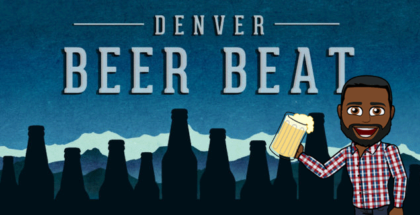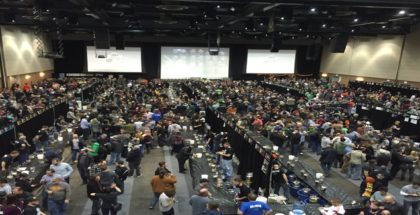How to not look like a douchebag about beer
For starters, I apologize for anyone offended by my use of the term douchebag to describe people of unsatisfactory behavior. In all honesty, I thought long and hard about another term I could use. Trying to find a word to describe someone who wants to seem as if he/she thinks they know a lot about beer, enjoys feeling superior to others, but inevitably ends up looking extremely stupid by inaccurately using terminology or giving unnecessary criticism is difficult to put your finger on. I have often been frustrated by such people, but I have not had the desire to call them a “know-it-all” or a “smart-alec”. Only one word ever comes to mind: douchebag.
So again, my apologies to all who might be offended. I attempted to choose other words, but did not want to compromise the passion I have behind this subject. I do not want you to look like a douchebag, and for that I use strong words.
So what is it that makes individuals look so douchey? Let’s start with a few small things. A common mistake people make when first starting to enter the wonderful world of craft beer is assuming they already know a lot and probably more than anyone else. The beautiful thing about the craft beer community is the motivation to keep growing in knowledge, asking questions of those around you, and growing from others’ expertise. If you just went on a beer tour at New Belgium, you undoubtedly know more about beer than your 17-year-old female cousin. You should not go to the bar of this brewery and try to tell your beertender about Belgian candi sugar. These people know more than you and will find you to be a douchebag. They could potentially embarrass you on your lack of knowledge, but are kinder than that and will allow you to go about your douchey ways.
And here lies the core problem: so many in the beer community are too kind and let you continue in your oblivion. You continue to think you know more about beer than most people, but never get it quite right.
Let me give you an example: A guy goes to a bar with a girl and orders a wheat beer. Trying to impress the girl, he asks the server if the beer is unfiltered and gives a nod of approval to discover that it is. The reality of the situation, is that wheat beers are defined by their lack of filtration. A bartender could return the question with a confirmation of the unfiltered nature of the beer and perhaps ask what wheat/barley blend the gentleman (term used loosely) is accustomed to. For a response to this answer, an individual actually needs to know more than what they can learn from a Blue Moon can.
One of my favorite things people do is using terms that they don’t actually understand. Often, and I mean extremely often, people ask for an Ale. They use this term attempting to describe a flavor they enjoy or maybe a malt profile they once appreciated. In reality, what makes an ale is a type of yeast. Now, this yeast can create more flavors than a lager yeast and an individual might find these esters and phenols enjoyable. However, it is likely that 90-100 percent of the beer that you find at a craft brewery is made with ale yeast. It’s like walking into Victoria’s Secret and asking for something made for a woman.
Here is another thing that makes one look douchey: Often people will go to a brewery to enjoy a beer, but in order to exhibit knowledge in the area of beer, they criticize what they are drinking. These people likely have a list of criticisms they study at night before bed so they can make comments about the acidity, choice in hops, malt profile, or session quality. Degrading a beer, brewer, or establishment does not make you more of an expert. This I find common in homebrewers who think they discovered secondary fermentation. You might have impressed a few of your friends who don’t know a Stella from a St. Feullien, but you have lost the respect of your local bartender. Beer people no longer want to be your friend.
So those are a few common mistakes, but does that really answer the question of, “How do I not look like a douchebag?” No, here it is: The reason you look like a douchebag is because you are trying to look better than other people or trying to make people respect you for your knowledge in beer. I admit that I have been this person before, and I hope I can steer you beerfriends away from such mistakes.
My recommendation for how to not look like a douchebag is this: continue learning and approach every beer experience as an opportunity to grow in knowledge and make a friend. Each brewery has a different style and experience they bring to the table. They will not like you if you parade knowledge they already have in front of them. Instead, ask questions. Don’t ask questions that lead you to exhibiting your extensive beer knowledge. Asking intelligent, meaningful questions will show how much you know while showing your enthusiasm to learn. Ask the person in the barstool next to your what their favorite brewery is or what style of beer they enjoy most. Ask the bartender what they love the most about what they do or what their favorite beer they have on tap is. Quietly listen as the brewer explains the brewing process or the measurement of International Bittering Units. Don’t be presumptuous or critical; be open-minded and ready to learn. That is how to not look like a douchebag.








Submit a Comment